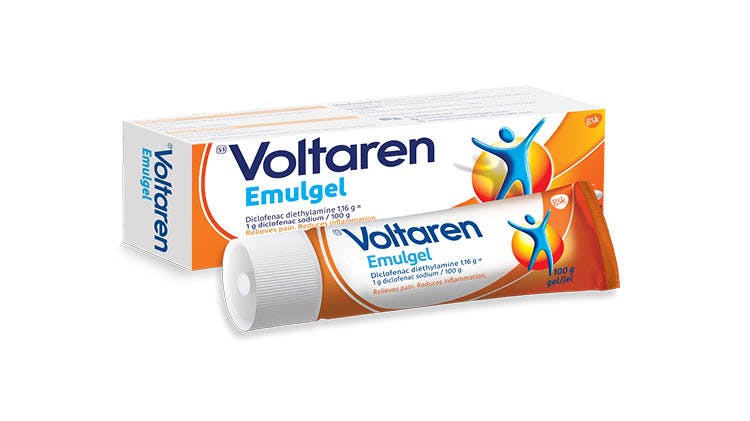Sprains and strains: Causes

Understand how sprains and strains occur
Knowing the causes of sprains and strains can help you identify these injuries, and therefore guide you to the most appropriate treatment for your patient.

Sprains and strains have specific causes
Soft-tissue injury involves a sprain, strain or direct blow to a muscle, tendon and/or ligament.1
- Sprains are caused by abnormal or excessive force applied to a joint1,2
- Strains occur when a muscle is stretched beyond its limit or has contracted too strongly1,2
- Overuse injuries, from repetitive friction, pulling, twisting or compression may also occur1

Sport is a common cause of sprains and strains, but not the only one
Soft-tissue injuries are common in sport.1,2 Indeed, muscle strains or overuse injuries account for around 50% of all injuries suffered during sport.3,4
However, these injuries can also occur through simple, everyday activities like over-stretching, tripping and falling or playing with the kids.2,3
Risk factors for sprains and strains
Understanding sprains and strains
Signs and symptoms
Explore an overview of how to recognise sprains and strains and when to refer patients.
Overview Acute Musculo Skeletal pain icon
Acute musculoskeletal pain is seen almost every day in pharmacy practice. Many patients will present with pain following a sport or work injury. Many of these injuries can be caused by a patient overexerting themselves and leading to muscle or joint inflammation. Conditions such as low-back pain, muscle pain affect a large number of patient.8,9 Most patients with mild to moderate pain can be managed with the large selection of pain relievers.
Learn more

Voltaren Emulgel
Relieves pain, reduces inflammation and speeds up the natural healing process.6–8

The role of Calpol Tablets and Voltaren Emulgel In managing your Customers pain.
A customer in pain is one of the most common presentations seen in pharmacy practice. Although there are a vast number of conditions that cause mild to moderate pain, many of them can be effectively managed by over-the-counter (OTC) pain relievers.